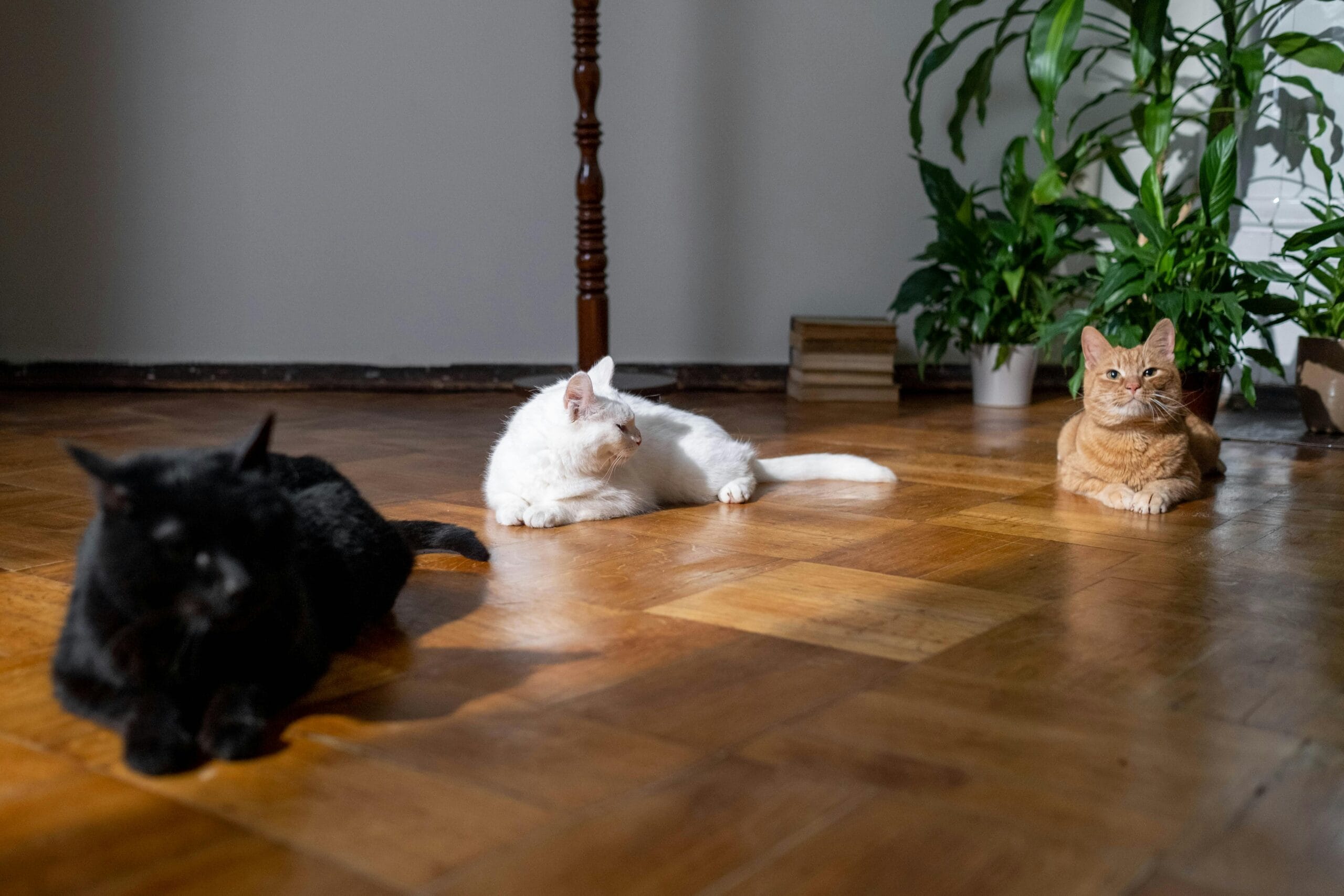How To Train A Kitten Not To Bite ?

How To Train A Kitten Not To Bite? Stop kitten biting & learn gentle play techniques! Get expert tips to curb aggressive behavior & enjoy a loving, playful kitten. Solve kitten biting problems now!
How To Train a Kitten Not To Bite: A Comprehensive Guide
Bringing a new kitten into your home is an exciting experience filled with playful antics and adorable snuggles. However, a common challenge many new kitten owners face is kitten biting. While playful nips are a normal part of kitten development, uncontrolled biting can be painful and even damaging, and it’s crucial to learn how to train a kitten not to bite early on. This comprehensive guide will equip you with the knowledge and techniques to curb this behavior and ensure a harmonious relationship with your furry friend.
Understanding Why Kittens Bite
Before we delve into training methods, it’s essential to understand why kittens bite in the first place. Kittens, especially young ones, explore the world through their mouths. Biting is an instinctual behavior, and it’s their way of investigating textures, objects, and even their human companions. They may also bite out of excitement, frustration, or even fear. Understanding the root cause is the first step in effectively addressing the stop kitten biting problem.
Playful biting is often characterized by gentle nips and a lack of aggression. However, if the bites are hard, frequent, or accompanied by hissing or growling, it could signify underlying issues requiring veterinary attention. If you’re unsure about the severity of your kitten’s biting, consulting a veterinarian is always recommended. The American Veterinary Medical Association website (https://www.avma.org/) offers valuable resources on feline behavior and health.
Effective Techniques to Stop Kitten Biting
Now that we understand the reasons behind kitten biting, let’s explore practical and effective ways to modify this behavior. The key is consistency and patience. It won’t happen overnight, but with dedicated effort, you can teach your kitten that biting is unacceptable.
1. Immediate Negative Reinforcement
When your kitten bites, immediately and calmly say “ouch!” or a similar short, sharp sound. Then, completely ignore the kitten for a short period (15-30 seconds). This withdrawal of attention teaches the kitten that biting leads to the loss of interaction, something they usually crave. Avoid punishment; yelling or physical correction will only scare and confuse your kitten, potentially worsening the biting.
2. Redirecting the Behavior
Kittens often bite out of excessive energy. Providing ample opportunities for play can significantly reduce stop kitten biting incidents. Engage your kitten in interactive play sessions using toys like wands, feather chasers, or even laser pointers. This redirects their predatory instincts into appropriate channels and helps them burn off excess energy.
Ensure you have a variety of engaging toys to prevent boredom and maintain interest. Rotating toys regularly keeps them novel and exciting for your kitten. Remember to prioritize interactive play sessions over solo playtime to better redirect their energy and bond with your kitten.
3. Positive Reinforcement
Reward your kitten for good behavior. When your kitten plays gently with you or avoids biting, immediately offer praise and a tasty treat. Positive reinforcement strengthens desirable behaviors and makes it more likely your kitten will repeat them. This approach helps create a positive association with appropriate play and discourages biting.
4. Teaching Bite Inhibition
Kittens learn bite inhibition from their mothers and littermates. If your kitten wasn’t raised with siblings, you need to teach this essential skill. When your kitten playfully nips, gently but firmly push back against their jaw or gently hold their mouth shut. This mimics the experience a mother cat would provide when a kitten bites too hard. Combine this method with a firm “ouch!” so your kitten associates this sensation with the pain of biting.
5. Creating a Safe and Enriching Environment
A bored or stressed kitten is more likely to bite. Provide your kitten with plenty of scratching posts, climbing structures, and hiding places to reduce stress and provide an enriching environment. This can significantly reduce the chances of your kitten turning to biting as a coping mechanism. Make sure your environment caters to your kitten’s natural instincts. Vertical scratching posts and high vantage points will promote scratching and play.
Managing Severe Cases of Kitten Biting
If you’ve tried the above methods and your kitten’s biting persists or is excessively aggressive, it’s crucial to seek professional help. A certified veterinary behaviorist or a qualified cat behavior consultant can assess the situation and develop a tailored behavior modification plan. The International Cat Care website (https://icatcare.org/) provides resources and information on finding qualified professionals.
Severe cases of biting may be linked to underlying medical conditions or behavioral issues such as fear or anxiety. A professional can help determine the cause and recommend appropriate interventions. Early intervention is key in managing severe biting behaviors and preventing future issues. Professional help can provide solutions beyond basic training techniques.
How To Train A Kitten Not To Bite: Long-Term Strategies
Training a kitten not to bite is an ongoing process, not a one-time fix. Consistency is key. Every member of the household needs to be on board and consistently apply the same techniques. Even after your kitten has largely stopped biting, continue to reinforce positive behaviors through play and treats to maintain the progress.
Regular veterinary check-ups are important to rule out any medical issues that may be contributing to the biting. Your vet can also provide guidance and support during the training process. Remember that your kitten is still learning and may occasionally revert to biting, especially during moments of heightened excitement or stress. Remain patient and consistent, and your efforts will pay off.
Addressing Specific Situations
Certain situations can trigger kitten biting more readily. Understanding these triggers allows you to anticipate and mitigate potential biting incidents. For instance, over-stimulated kittens might bite during active playtime, requiring a break from interaction. Tired or stressed kittens might also bite. Recognizing these signs helps you adjust your approach and provide them with the rest or comfort they need.
The Importance of Patience and Consistency in Stop Kitten Biting
Finally, remember that training a kitten takes time, patience, and consistent effort. There will be setbacks, but don’t get discouraged. Celebrate small victories, and continue to reinforce positive behaviors. With love, patience, and the techniques outlined above, you can effectively curb your kitten’s biting and build a strong, loving bond based on mutual respect and understanding. Remember that your approach should always be positive reinforcement, never punishment.
How to train a kitten not to bite is a question many new pet owners have. This guide provides a holistic approach to stop kitten biting and build a positive relationship with your feline companion. Remember that early intervention is critical, and consistency is key.
Share Your Experiences!
We’d love to hear about your experiences with kitten biting and the techniques you’ve found most effective in how to train a kitten not to bite. Share your success stories (and challenges!) in the comments section below! Let’s create a supportive community for cat owners to learn from each other’s experiences and help more kittens grow into well-adjusted companions.

10 FAQs: How To Train A Kitten Not To Bite
1. Q: My kitten bites playfully, but it hurts! How do I stop this?
A: Playful biting is a common kitten behavior. The key to stopping it is to make biting undesirable. When your kitten bites, immediately yelp sharply (“ouch!”), stop playing, and turn away. Ignore the kitten for a minute or two. This mimics a mother cat’s reaction and teaches the kitten that biting ends playtime. Consistent application of this “yell and ignore” technique is crucial for success in how to train a kitten not to bite.
2. Q: My kitten bites when I pet it. What should I do?
A: Some kittens bite during petting because they get overstimulated. Learn your kitten’s limits. If it starts to bite while you pet it, stop immediately. Try petting it less and for shorter periods. If it starts to bite, stop stroking and try again later. This helps you understand the nuances of how to train a kitten not to bite and manage overstimulation.
3. Q: How can I teach my kitten to use its claws instead of its teeth?
A: Provide plenty of scratching posts and toys. Redirect biting behavior by offering an appropriate alternative. When it starts to bite, gently redirect its attention to a toy or scratching post. This teaches your kitten that there are more appropriate ways to express energy, addressing the root cause of kitten biting.
4. Q: My kitten is a biter, even when it’s not playing. What’s wrong?
A: Biting outside of play can signal underlying issues like pain, fear, or stress. Rule out any medical reasons with a vet visit. If there’s no medical cause, consider environmental enrichment (more toys, climbing structures) to reduce stress. Address stop kitten biting from a holistic perspective, considering the emotional well-being of your cat.
5. Q: My kitten bites my hands while I’m feeding it. How do I prevent this?
A: Never put your hand directly into the food bowl. Use tongs or a scoop to serve food. This removes the incentive for kitten biting during mealtimes.
6. Q: Is it cruel to yell at a kitten for biting?
A: No, a sharp “ouch!” is a communication tool; shouting or punishing excessively is not. The goal of how to train a kitten not to bite is to teach, not scare. Consistent positive reinforcement of good behavior is more effective than harsh punishment.
7. Q: How long does it take to stop kitten biting?
A: It varies. Consistency is key. Some kittens learn quickly, others might take weeks or even months. Patience and consistent application of the techniques mentioned are vital in resolving kitten biting issues.
8. Q: My kitten is now 6 months old and still bites. Is it too late to train it?
A: No, it’s never too late! While younger kittens are easier to train, older kittens can still learn. Be consistent with your training methods and consider seeking advice from a professional cat trainer or veterinary behaviorist if needed to effectively stop kitten biting.
9. Q: What are some preventative measures against kitten biting?
A: Provide plenty of toys, enrichment activities, and playtime. A tired kitten is less likely to bite. Early socialization is also crucial. Expose your kitten to various sights, sounds, and interactions from a young age.
10. Q: When should I consider professional help for stop kitten biting?
A: If your kitten’s biting is severe, aggressive, or if home training methods aren’t working after several weeks of consistent effort, consult a veterinarian or certified cat behaviorist for guidance on how to train a kitten not to bite. They can assess underlying causes and recommend tailored solutions.

How to Train a Kitten Not to Bite: Practical Tips and Health Considerations
Kitten biting is a common problem, but with patience and consistency, you can teach your furry friend gentle play. This guide offers practical tips and addresses potential health concerns.
Understanding Kitten Bites
Kittens bite for several reasons: teething, exploring their world through their mouths, excitement, or play. It’s crucial to differentiate between playful nips and aggressive biting. Playful biting is usually less forceful and accompanied by other playful behaviors. Aggressive biting is harder, more deliberate, and often associated with fear or anxiety.
Practical Training Tips
1. Redirect Behavior: When your kitten bites, immediately stop playing. Offer an alternative, like a toy. Positive reinforcement with treats and praise when they play appropriately with toys is key.
2. High-Pitched Yowls: Mimic a cat’s yowl or a high-pitched sound when bitten. Cats communicate through vocalizations, and this helps them understand that biting is unpleasant.
3. Time-Outs: If biting persists, briefly remove your kitten from the situation. A short time-out (30 seconds to a minute) can effectively communicate undesirable behavior.
4. Supervise Interactions: Always supervise playtime, especially with children. Young children may unintentionally encourage biting by giggling or reacting excitedly.
5. Controlled Play: Engage in controlled play sessions using toys that allow for chasing and pouncing. Avoid using your hands or feet as toys.
6. Positive Reinforcement: Reward good behavior immediately with praise and treats. This encourages your kitten to repeat gentle actions.
7. Enrichment: Provide plenty of enrichment, such as climbing structures, scratching posts, and interactive toys. A bored kitten is more likely to bite out of frustration.
Health Considerations
1. Teething: Kittens bite more during teething. Provide appropriate chew toys to help alleviate discomfort.
2. Pain or Illness: Sudden or aggressive biting can indicate underlying pain or illness. Consult a veterinarian if your kitten’s behavior changes dramatically or is accompanied by other symptoms.
3. Fear or Anxiety: If biting is linked to fear or anxiety, address the root cause. Consult with a veterinarian or a certified cat behaviorist for assistance.
SEO Keywords:
kitten biting, kitten aggression, stop kitten biting, training kitten, kitten behavior, playful biting, aggressive biting, kitten teething, kitten health, cat behaviorist
3 thoughts on “How To Train A Kitten Not To Bite ?”